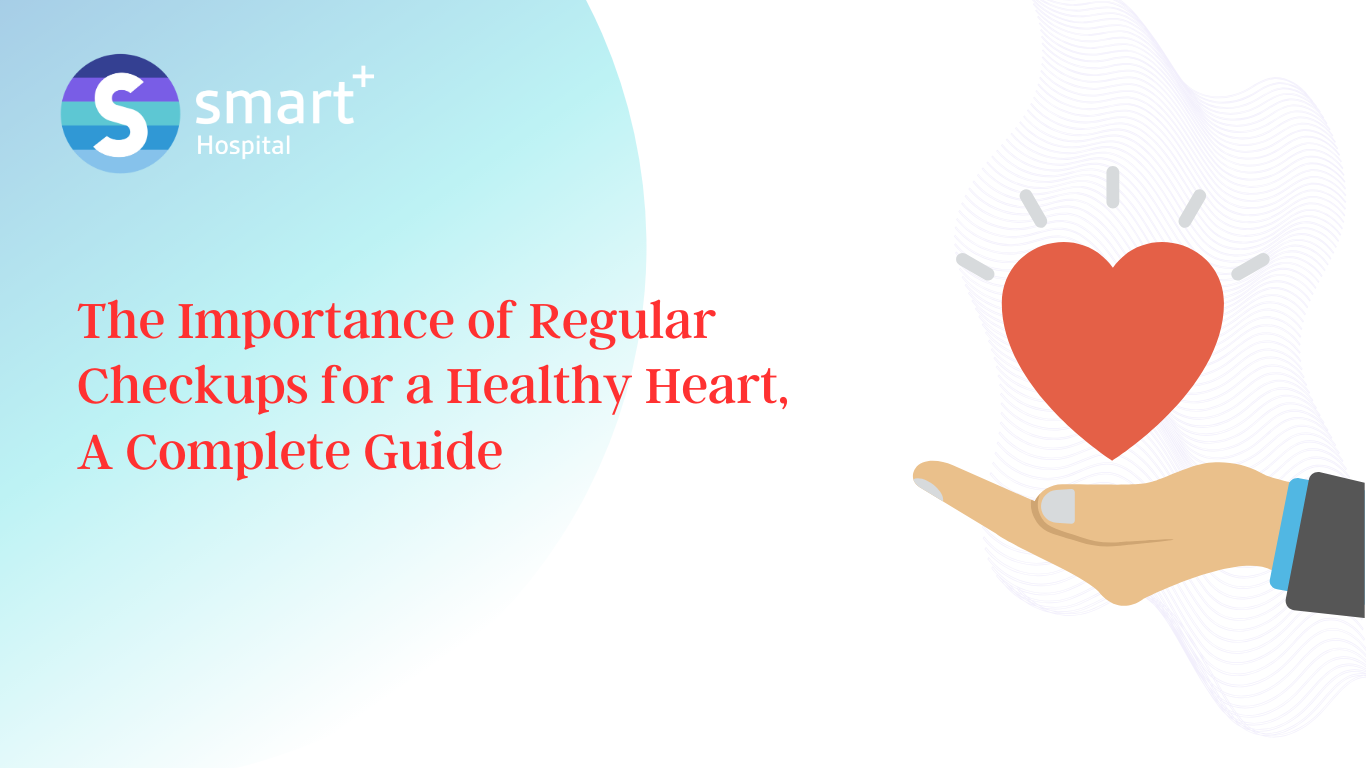In today’s hustle and bustle, it’s easy to forget about taking care of ourselves, especially our health. We’re all juggling work, family, and many other things, but we can’t afford to ignore our heart health.
Our heart is like the engine of our body; if it’s not working properly, we’re in serious trouble. That’s why it’s crucial to have regular heart check-ups, to keep everything ticking along as it should.
In this post, we’ll delve into the importance of regular heart health screenings and how they can help you maintain a healthy heart.
Why are Regular Heart Checkups Important?
Early Detection is Key
The primary goal of a heart checkup is early detection. Diseases such as high blood pressure, high cholesterol, and diabetes are known as ‘silent killers’ because they often have no symptoms until too late.
Regular screenings allow you to catch these conditions early, giving you a chance to manage them effectively.
A Personalised Approach
Checkups aren’t just about ticking off a list; they are tailored to you. Family history, lifestyle, and other personal factors are all considered, helping you to develop a personalised plan to maintain or improve your heart health.
Prioritise Your Heart Health
Getting regular heart check-ups is vital for staying healthy. Cardiologists thoroughly evaluate heart issues early, check existing problems, and spot risk factors.
Going to a cardiology hospital for these check-ups can help catch problems early and stop things like heart attacks and strokes from happening.
Tests & Screenings
Blood Pressure Test
Regular blood pressure screenings are a cornerstone of heart health. High blood pressure is a significant risk factor for heart disease and stroke.
Cholesterol Test
A lipid profile or cholesterol test helps evaluate your levels of LDL (‘bad’ cholesterol), HDL (‘good’ cholesterol), and triglycerides. This information guides healthcare providers in assessing your cardiovascular risk.
EKG/ECG
An electrocardiogram (EKG or ECG) can identify irregularities in heart rhythm, providing vital clues about heart health.
Stress Test
A heart stress test makes your heart pumps faster. This test monitors your heart rate while you’re active, often by walking on a treadmill.
A stress test helps identify issues that may not be noticeable when you’re at rest.
Cardiac MRI and CT Scans
These imaging tests provide more detailed information and are usually reserved for cases requiring more in-depth investigation.
Heart Risk Factors
Some risk factors are beyond our control, such as age, family history, and gender. However, understanding these can help us proactively manage other controllable factors.
Lifestyle Factors
These include diet, physical activity, stress, and smoking. Positive lifestyle changes can dramatically reduce your risk of heart disease.
The Psychological Aspect of Heart Health
Stress Management
Chronic stress contributes to heart problems by raising blood pressure and causing inflammation. Learning stress management techniques like mindfulness can be helpful.
The Role of Mental Health
Depression and anxiety can also impact heart health, making mental well-being a critical part of overall heart care. It includes positive thinking, meditation, and surrounding yourself with healthy auras.
How Often Should You Get a Heart Checkup?
The frequency of heart checkups can vary depending on your age, risk factors, and medical history.
Adults should consider getting a heart checkup every 4 to 6 years in their 20s and 30s. As you age or if you have specific risk factors, such as high blood pressure or diabetes, more frequent checkups are recommended.
Lifestyle Changes for a Healthy Heart
Diet
Adopting a diet rich in fruits, vegetables, and lean proteins can go a long way in maintaining heart health.
Exercise
Regular exercise helps control weight, reduces stress, and strengthens the heart muscle.
Quit Smoking
If you smoke, quitting is the best thing you can do for your heart.
Alcohol in Moderation
Too much alcohol can raise your blood pressure. It’s advised to drink in moderation if you consume alcohol.
Conclusion
Regular heart checkups are not just a box to tick off; they are essential to keep your heart healthy.
These checkups play a crucial role in early detection, personalised risk assessment, and promoting heart-healthy lifestyles.
You can take proactive steps towards a longer and healthier life by prioritising your heart health and scheduling regular checkups. Your heart is your lifeline, so make sure to give it the attention it deserves through regular checkups. Your future self will thank you for it.
FAQs
1. How often should I get a heart checkup?
A: It depends on your age, risk factors, and current health status. However, a yearly checkup is generally recommended for adults.
2. What tests are included in a heart checkup?
A: Common tests include blood pressure measurements, cholesterol tests, and EKG/ECG. Some individuals may also require stress tests or imaging scans.
3: Can heart disease be prevented?
A: While you can’t change some risk factors like age and genetics, many forms of heart disease can be prevented or managed through lifestyle changes and regular checkups.
4. How does stress impact the heart?
A: Chronic stress can contribute to heart disease by raising blood pressure and causing inflammation. Stress management is crucial for heart health.




